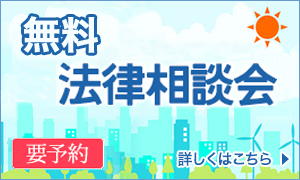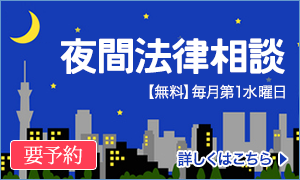Ptd Financial Definition
Bank drafts – also known as bank notes, cashier`s cheques or cashier`s cheques – are like bank drafts. These are secure payment options guaranteed by the issuing bank – in many cases for a large sum of money. When a client requests a cashier`s cheque, the representative ensures that they have enough funds in their account to cover the amount requested. After verification, the bank withdraws the money from the customer`s account and transfers it to a general ledger or internal account. The bank creates the bill of exchange with the name of the beneficiary and the amount. The project has a serial number that identifies the client who is handing over watermarks, and may even have a microcoding that identifies it as a legitimate financial instrument that can be traded if presented by the beneficiary to their bank. Since the funds are already withdrawn from the requesting client`s account, the issuing bank eventually becomes the payer. The use of PTAs by foreign financial institutions, combined with inadequate oversight by U.S. banks, can facilitate unsound banking practices, including money laundering and related criminal activity. The potential to facilitate money laundering or terrorist financing, OFAC violations, and other serious crimes increases when a U.S. bank is unable to properly identify and understand end-user transactions (all or most of which are located outside the U.S.) of its account with a foreign correspondent. PTAs used for illicit purposes can cause banks serious financial losses in the form of criminal and civil fines and penalties, seizure or confiscation of collateral and damage to reputation. Foreign financial institutions use PTA accounts, also known as “pass-through” or “pass-by” accounts, to give their customers access to the U.S.
banking system. Certain U.S. banks, periphery and contract companies, and U.S. branches and agencies of foreign financial institutions (collectively, U.S. banks) offer these accounts as a service to foreign financial institutions. Law enforcement agencies have determined that the risk of money laundering and other illegal activities is higher in PTAs that are not adequately controlled. U.S. banks that provide subscriber buying services should develop and maintain appropriate policies, procedures, and processes to protect against possible illegal use of these accounts. At a minimum, policies, procedures, and processes should enable each U.S. bank to identify end-users of its foreign financial institution, the PTA, and should include the bank receiving substantially the same information about PTA`s end-users (or having the ability to obtain it through a trust agreement with third parties) as it does about its direct customers. For a full explanation from the Federal Deposit Insurance Corporation, see: www.fdic.gov/news/news/financial/1995/fil9530.html shows only Business & Finance definitions (see 65 definitions) Policies, procedures and processes should review the foreign financial institution`s processes for identifying and monitoring sub-account holders` transactions and complying with all legal and regulatory requirements to combat money laundering in the host country and in the Framework Agreement between a Foreign Financial Institution and the U.S.
Bank. In addition, U.S. banks should have procedures in place to monitor transactions in PTAs of foreign financial institutions. Roles and responsibilities of each party. Limits or restrictions on the types and amounts of transactions (e.g. foreign currency deposits, money transfers, cheque cashing). Restrictions on the types of sub-account holders (e.g. casas de cambio, financial companies, money transfers or other non-bank financial institutions). Prohibitions or restrictions for holders of multi-level sub-accounts.193 Access to internal documents and audits of the foreign financial institution relating to its PCA activities. U.S. banks should consider closing the PTA under the following circumstances: Note: We have 136 other definitions of PTD in our acronym Attic PTA may be subject to higher risk because U.S.
banks generally do not apply the same due diligence requirements for PTAs that they require of domestic customers who wish to open checking and other accounts. For example, some U.S. banks only require a copy of signature cards completed by the payable customer (the customer of the foreign financial institution). These U.S. banks then process thousands of checks from sub-account holders and other transactions, including foreign currency deposits, through the foreign financial institution`s PTA. In most cases, little or no independent effort is made to obtain or confirm information on individual and business account holders who use PTAs. A bank prepares the design on behalf of a company. It will have an automated signature and has a basis for the actual balance or money in an account.
A change is instantaneous and will withdraw money directly from the account, while a check must first be processed by the issuing banks and also by the account holder. In practice management, the comparable ratio is PTD Billing. In Practice Advantage is the comparable Billing Review report. Transactional service code, in the format service code name (service code ID). While a design can look and function like a check in many ways, there are differences. The draft is a legal document (as a written order) and provides additional security for the transfer of funds between companies or traders. You can only buy cashier`s checks from a bank, while money orders can be purchased at certified stores, post offices or banks. The subcategory ID to which the service code is assigned. Includes or excludes expense entries in the calculation of realization. Centre for Responsible Lending. “Unfair Market: The State of Costly Overdraft Practices in 2017.” Retrieved 10 September 2020.
Some banks may not stop payments on cheques once they have been issued. This is because, according to their records, the transaction has already taken place. If the buyer wants to cancel the transaction, the bank usually asks him to refund the bill of exchange for the full amount. In some cases, it is possible to cancel or replace a lost, stolen or destroyed drawing as long as the customer has the appropriate documentation. A cashier`s check is an instrument by which the issuing bank guarantees payment after verifying that the issuing account has sufficient funds. In order to receive a cashier`s cheque, funds must be deposited with the issuing bank of the amount of the cheque and applicable fees. The bank creates a cheque to the beneficiary, which is drawn on the bank`s account. The check shows the name of the sender, but the bank appears as the entity making the payment. A teller or bank official will sign the cheque.
Since money is withdrawn and issued by a bank, a cashier`s check guarantees the availability of the underlying funds. This payment method is useful when you need to apply for secure financing. A change of mind is a type of change in which the exporter holds ownership of the goods transported until the importer receives and pays for the goods. A time plan is a form of short-term credit used to finance transactions of goods in international trade with a bank between the two parties. An intermediary account (PTA) is a demand deposit account through which bank branches in the United States grant checkwriting privileges to customers of other institutions, often foreign banks. The name of the bank appears on the front of the cheque. However, the bank does not verify the signature or banknote, which is the responsibility of the issuing company. Credit union stock drafts are also payable trading instruments (usually cleared by a correspondent bank). Cash settlement for futures, options and other securities may use a PTD procedure. Often, these transactions take place at some distance from the parties involved and involve large sums of money.



